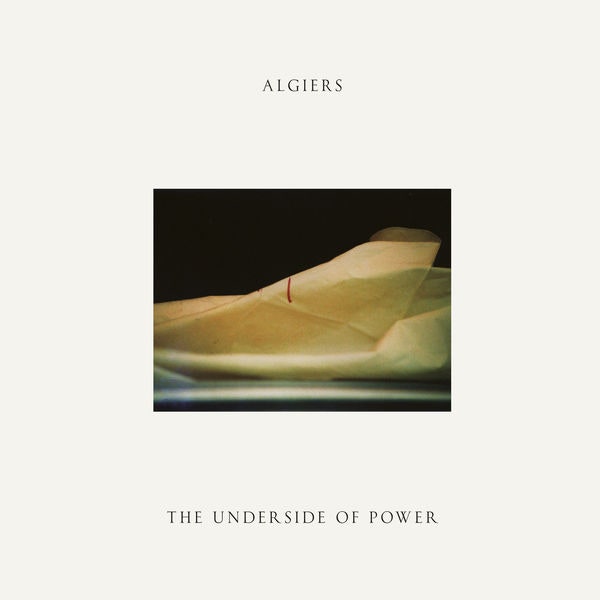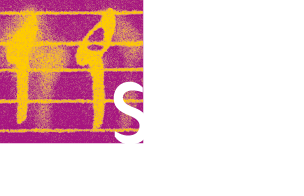Gospel, punk, and noise fuse together for Algiers’ ambitious and chaotic second album. The songs burn with anger and grief, but lack cohesion to get the message across.
Algiers seem like a vision from a more progressive future: a mixed-race band from the American South fusing gospel and punk while challenging the capitalist state with righteous indignation. They’re a ragtag group of dissidents confronting the established order with industrial hymnals, raging against the machine through experimental rock epics; a band whose very name refers to the anti-colonial struggle. After releasing their self-titled debut in 2015, the trio of Franklin James Fisher, Ryan Mahan, and Lee Tesche were joined by former Bloc Party drummer Matt Tong. The newly-minted foursome made a pact never to be defined by their roles, and hoped to create an even more ambitious and outspoken work. Their sophomore album, The Underside of Power, strives to be the rallying cry for a tumultuous time.
Sessions for the record began in the UK during Brexit with Adrian Utley of Portishead. Utley was added to bring even greater urgency to the band’s aggressively political recordings. The flint for this powder keg was not only the rapidly degenerating political situation in both the UK and U.S. last year, but Fisher’s more personal experiences with race and privilege. As a 35-year-old black man, Fisher wrote many of the songs while working coat check at a Manhattan nightclub, inspired by observing young white people shout the n-word during rap songs. Much of the album, as the title suggests, spirals outward from these encounters, examining those disenfranchised by the system and eyeing a reckoning.
The reference points and influences for the album are vast and varied. The Black Panthers and Fred Hampton, Che Guevara, Camus’ The Plague, T.S. Eliot, Italian zombie exploitation flicks and horror film disco, PiL, Michael Stipe, Walter Benjamin, Jamaican soul, Dominick Fernow’s Vatican Shadow. The opener “Walk Like a Panther” alone tries to evoke Geto Boys, Afrika Bambaataa, grime, and footwork all at once, while maintaining the industrial gospel core. Mahan described “Mme Rieux” as capturing “the essence of early Portishead, if played with Wendy Carlos.” Then he said the same song was “a Donny Hathaway soul song mixed with the Shangri-Las and Delia Derbyshire.”
These are accurate comparisons as far as they go, but they also point to the album’s central problem: It’s overwrought and wildly overstuffed. In theory, The Underside of Power is the type of politically-charged work that would seem indispensable in times of crisis like the one we face today. It’s an eclectic mix of styles and sounds using protest to sustain its punk thrashers. The blueprint for such an album is out there—in bands that have inspired Algiers, like Bad Brains and the Clash, or groups like Public Enemy, Rage Against the Machine, Fishbone, and Dicks, all of which cross-pollinated genres to create explosive political music. But in practice, very few songs actually hit with the intended force. They’re bombastic to the point of kitsch, even though the issues at hand are a matter of life and death.
Algiers’ self-titled debut managed to weave many styles and sounds and say something powerful. A song like that record’s “Black Eunuch,” which subtly explored the relationship between sex and power, was super-charged with big, harmonic church-choir vocals and smashing guitar riffs. That equilibrium between opposing sonic forces isn’t found here. The songs rarely sound finished, or even like they have complete thoughts (as on “A Murmur. A Sign,” a previously-shelved song where Fisher’s hammy croon and the synth part undermine each other, as if each is only half-written). “Hymn for an Average Man” was inspired by Brexit and written for Trump supporters, imagining how working class complicity in the rise of fascism might square with their choices. An otherwise haunting portrayal powered by solo piano is disrupted by off-pitch synth and choir accents that, in this context, are a needless distraction.
While the production meanders, the songs also struggle with focus. “The Cycle/The Spiral: Time to Go Down Slowly,” which was originally based on a letter written to Fisher’s wife after an argument, somehow becomes a song about cyclical violence with an ending written about his parents’ divorce. Then there’s “Cleveland,” which samples Rev. James Cleveland’s gospel staple “Peace Be Still” and is supposed to invoke the memory of 12-year-old Tamir Rice, who was gunned down by Cleveland police in 2014, though he's never mentioned by name. Fisher names other victims of racially motivated violence—Sandra Bland, Andre Jones, Kindra Chapman, Keith Warren, Alfred Wright—and sings of karmic justice (“innocence is alive and it’s coming back one day”), but the effect is weirdly impersonal. This contrasts to moving tributes like Blood Orange’s “Sandra’s Smile” or Miguel’s “How Many,” songs that humanize their subjects. Weighty topics and individual stories on The Underside of Power feel more like abstractions, despite the ragged intensity of the delivery.
Cohesion can be overrated. A full-length album can certainly be concerned with building good songs first, and figuring out how they fit together as a whole later. Disorder can serve a record well; sprawl can help build suspense, create powerful dynamics, allow an artist to explore or magnify tensions, or cover varied terrain. But there’s something to be said for focus, particularly when delivering a specific message to an audience is the goal. Algiers have produced a record that is timely and necessary but also scatterbrained and messy, one that is so over the top it becomes a political melodrama, undercutting the issues it seeks to amplify.

